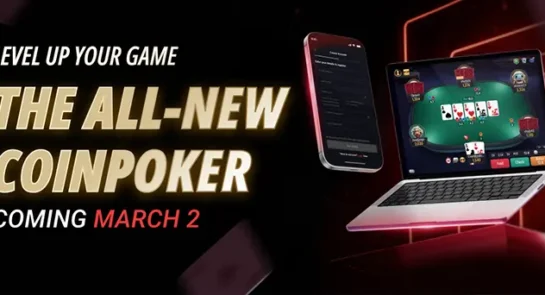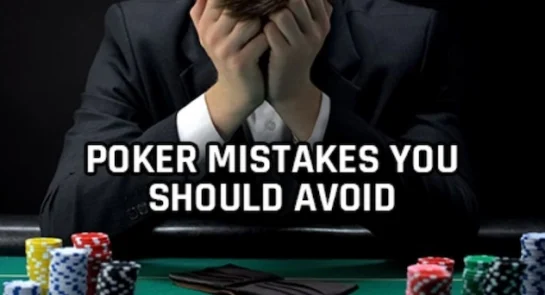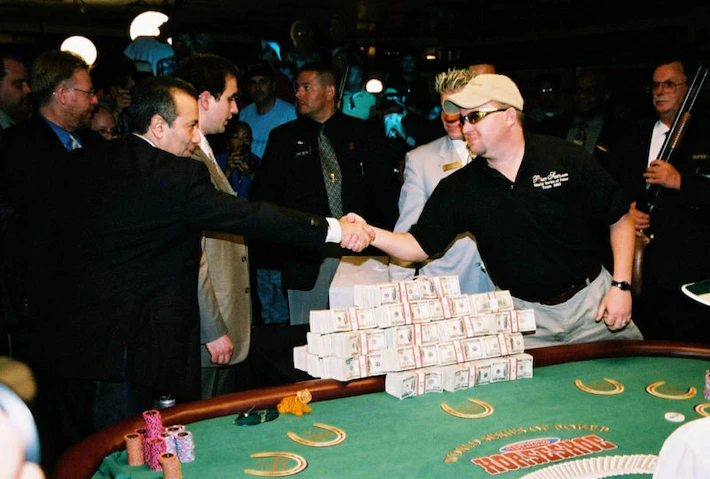
This is what Upswing Poker founder Doug Polk has been asking his fans and followers on X, and to be honest, we’ve seen some pretty interesting answers.
Of course when you ask subjective questions like this, you will get a wide range of answers; not everybody will agree.
WSOP Laying the Foundations
Doyle Brunson
The first name which appears throughout most of the early posts will come as no surprise to any generation of poker player still in the game today — Doyle Brunson!
There can’t be any argument there; this is the guy who was the face of poker coming through the 1970s and into the 1980s when tournament poker really took off and put the game on the map.
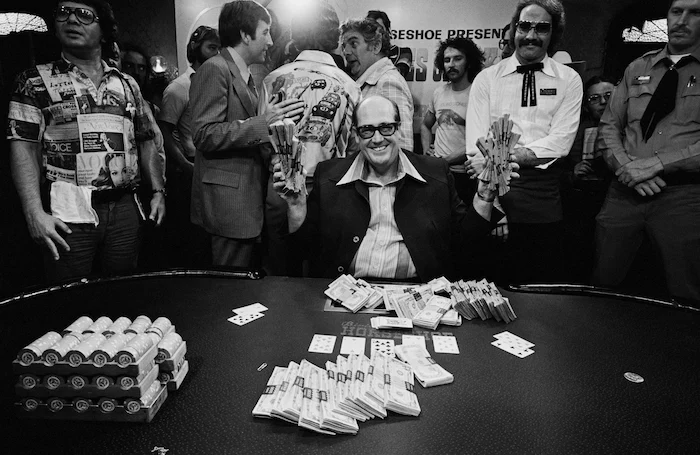
Benny Binion
And talking of tournament poker, Benny Binion was clearly right up there with the answers. This is the guy who came up with the idea of the World Series of Poker which ultimately gave us the poker boom two decades ago.
Chris Moneymaker
Of course we can’t talk about the WSOP without mentioning 2003 Main Event winner Chris Moneymaker. Binion might have given us the WSOP but it was the accountant from Tennessee who pulled off the impossible and made everybody dream.
A run-of-the-mill satellite tournament cost $86 and Chris Moneymaker won that to get his seat into the WSOP 2003 Main Event. That $10,000 seat ended up pocketing him $2.5 million. If he could do it, we all asked ourselves, then so could we, and the poker boom was born.
TV Poker & the Online Boom Sewed the Seed
Isai Scheinberg
Isai Scheinberg appeared many times in the thread. As the founder of PokerStars who dominated the online poker scene with Full Tilt Poker back in the day, he was an obvious choice.
Surprisingly, after reading through the suggestions in Polk’s thread, only a couple of people thought back to when TV poker became a big hit; some even failing to name the man responsible.
Henry Orenstein
Henry Orenstein, a Polish-born toymaker, came up with the idea of the hole camera back in 1995. It took a few years before anybody took the idea seriously, automatically assuming that the pros wouldn’t want their secrets displayed for all the world to see.
But in the late 1990s, a program called Late Night Poker aired in the UK and it was an instant hit — people were hooked!
Knowing who had a hand and who was bluffing added an edge to the proceedings unlike anything seen before. And not only that, it appeared that the pros were on-side after all.
What better way to keep money rolling into the game than to promote the game and have countless newbies rocking up to the casinos thinking they can play.
It was a huge win and timed perfectly, only a few years before Moneymaker pulled off his famous victory. In fact, it was during the WSOP 2002 that ESPN first used the hole cameras for its official coverage.
Mori Eskandani
These events lead us towards legendary TV producer Mori Eskandani. With the now popular hole camera technology, he brought the fans shows such as Poker After Dark, High Stakes Poker, and the National Heads-Up Poker Championship.
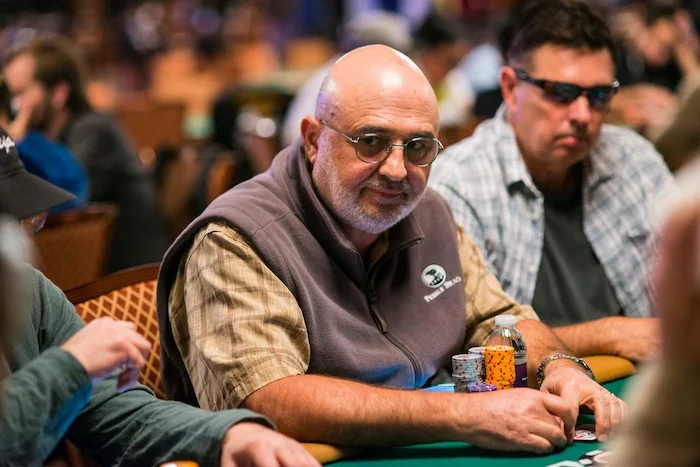
Helping Players to Learn
Jason Somerville
And what about Jason Somerville — AKA JCarver — the original poker Twitch streamer? It was one thing to be able to have commentators explaining what they thought was happening during a hand, but quite another when the actual player is able to do it live.
This was groundbreaking, not only for the entertainment factor but also in terms of creating a new avenue for new players wanting to learn how to improve their skill set.
Here we had a highly-respected professional player giving you off of the details in his thought process for every decision.
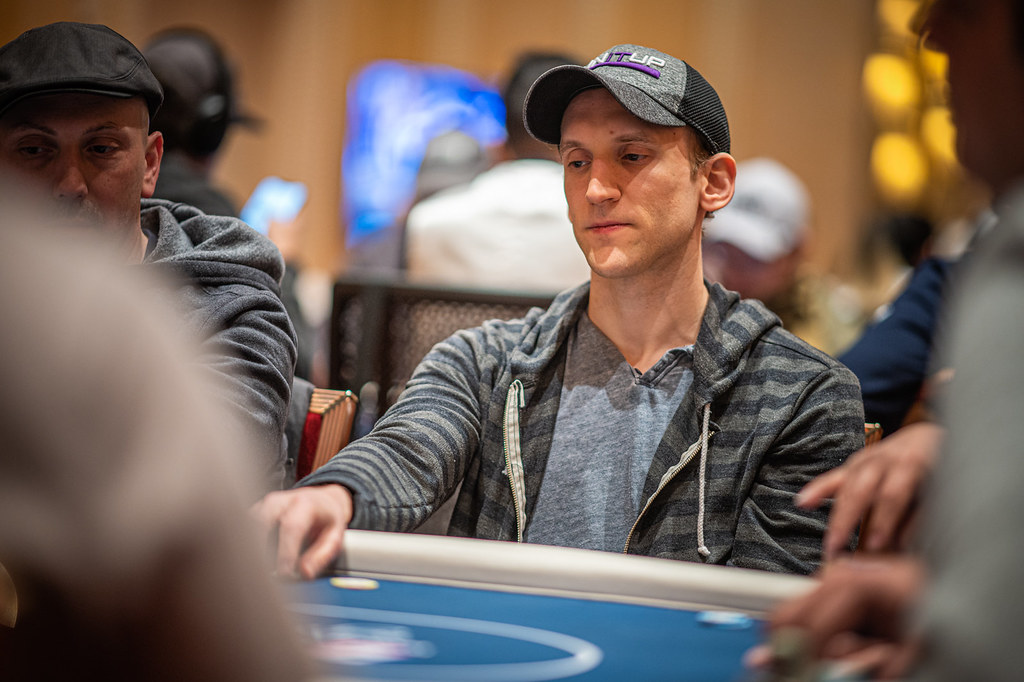
The Twitch poker scene has been invaluable for keeping players entertained over the years. Somerville is clearly one of the most influential players poker has seen.
Dan Harrington
While we’re thinking about helping players to learn, shouldn’t Dan Harrington be in the mix?
Harrington, winner of the WSOP 1995 Main Event, wrote a series of books detailing how to play tournaments in such an in-depth and clear way. They were released as the poker boom was starting, making them a compulsory purchase for any aspiring players.
They were of such high quality that there was quite an angry push back from the best players towards Harrington for giving away what were thought of as trade secrets. But the game wasn’t harmed in any way, in fact quite the opposite.
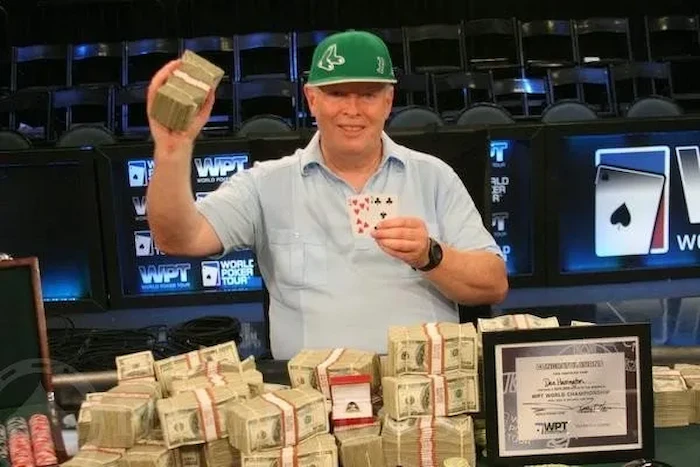
Chris Moneymaker might have given us a dream that we could win big like he did, but it was Dan Harrington who taught us how we should go about it.
Of course there should be an honourable mention for Doyle Brunson’s all-time classic publication Super System which preceded the Harrington series. That tome set about teaching just about every game you could find, but not to the depth that Harrington went.
David Sklansky
David Sklansky, one of the founders of Two Plus Two Publishing helped to educate multiple generations of players with his books. He was mentioned several times.
Who do you think are the most influential people in poker history?
Can be players, operators, whoever else
— Doug Polk (Code Doug) (@DougPolkVids) August 14, 2025
Other Notable Players
Much of the thread was full of people listing what looked like their favourite players and who they think are the best players.
While these characters have displayed influence over the years, it’s arguable that few of them have ushered in real change to the game.
Phil Ivey
Phil Ivey, for example, is the most popular vote for being the poker G.O.A.T., but what is his influence beyond that?
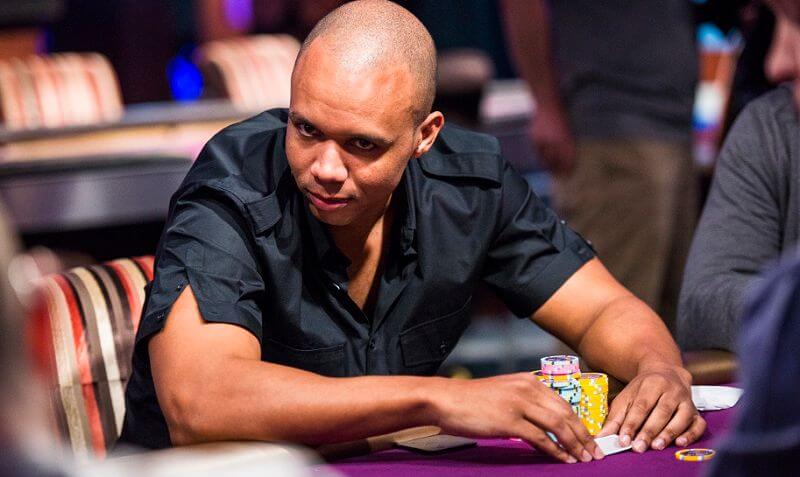
He ticks all of the boxes: respect from the fans, sheer greatness at playing the game, an image that is good for the game, but as far as being influential is concerned there are others in front of him on this list.
This reasoning applies to many of the greats in recent times. Think about Tom “durrrr” Dwan, Dan “Jungleman” Cates, and Viktor “Isildur1” Blom — poker greats for sure but influential? We think too many people posting in Polk’s thread are voting with their hearts.
Stu Ungar and Dave “Devilfish” Ulliot got plenty of mentions. Both sadly are no longer with us now but they were big characters at the table.
And there’s Phil Hellmuth with his “white magic”, Daniel Negreanu, and Mike Sexton, plus many, many more who deserve a mention
People can argue all they like about which superstar players had the most influence on the game, but it’s a thankless task to try and reason who did more than the others.













